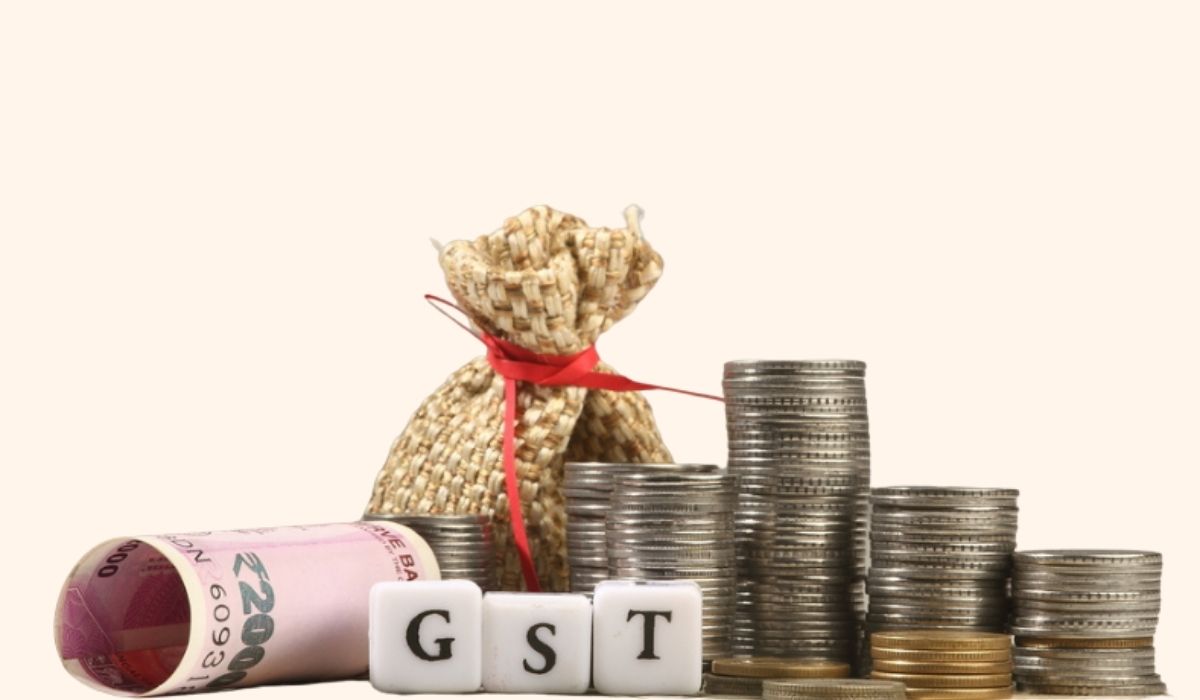GST, or Goods and Services Tax, is a unified tax system implemented in India in July 2017. It replaced multiple indirect taxes and impacted various industries, including the financial sector. In times of monetary crunch, a personal loan is a popular borrowing option to get immediate funds. While the principal loan amount is not taxable, other services related to personal loans like processing fees and foreclosure charges, attract GST. This increases the borrowing cost.
Understanding the effect of GST on personal loans is important to make informed decisions and manage your expenses. In this blog, we will explore the impacts of GST on personal loans and tips to reduce your costs on GST.
Impact of GST Rate on Personal Loan
Before the implementation of GST, a service tax of 15% was applicable on personal loans. However, as GST was implemented, this tax rate increased to 18%. This means that the borrower’s borrowing cost increased by 3%. The principal amount of the loan remains tax-free. Charges related to personal loans such as processing charges, foreclosure charges and late payment penalties are subjected to GST.
Example:
If you apply for a personal loan of amount ₹2,00,000 and the processing fees for this loan ₹10,000 then the GST of 18% will be applicable on it. This additional cost of tax increases the cost of borrowing:
- Loan amount: ₹2,00,000
- Processing fees: ₹10,000
- GST on processing Fees (18%): ₹1,800
- Total Fees: ₹11,800
Understanding these charges and expenses is important before applying for a loan so that you can assess your finances accordingly or explore the options to save the cost of GST on your personal loan.
What Components of a Personal Loan are Affected by the GST?
Various components of a personal loan are affected by GST. So, a borrower must know about these costs to make a knowledgeable decision while applying for a loan:
1. Processing fees:
When you apply for a personal loan, a processing fee is charged by the lender to process your loan. GST is not charged on the principal amount of the loan, it is charged on this processing charge. GST of 18% is charged on the processing fees.
2. Prepayment or foreclosure charges:
Most lenders offer flexibility in the repayment of loans. The borrower can prepay or foreclose their loan. But often, charges are levied on the prepayment of loans, GST is applicable on these charges.
3. Late payment penalties:
When borrowers fail to pay their EMI on time, lenders charge a late payment penalty. The penalty’s cost is further increased by 18% because of GST. This makes it even more important to make the payments on time and avoid unnecessary financial burdens.
4. Loan insurance premiums:
To protect themselves in case of unforeseen damage, some borrowers take insurance coverage to protect their loan liability. The premiums from this insurance are subject to 18% GST.
EMIs
One positive thing to note is that GST is not applied to EMIs. This is because GST exempts the principal amount of the loan and the interest components. However, 18% of GST is applicable on other charges mentioned above, which increases the overall cost of borrowing.
Also, Read: GST on Personal Loan
How You Save Up on the GST Charged on Personal Loans?
Tips to minimize GST expenses:
- Compare Lenders: Compare multiple lenders, as processing charges vary from lender to lender. Apply for a loan from a lender with lower interest and processing fees, which will reduce the overall cost of your borrowing.
- Opt for Loans with Minimal Additional Charges: Look for a lender who offers the loan with minimum service charges such as prepayment penalties. This will reduce your cost of GST.
- Avoid Late Payments: Timely payment of EMIs will help you to avoid the additional cost of late payment penalties, and also the GST charged on these penalties. To never miss a due date, set up automatic payments or reminders.
Strategize Your Loan Amounts and Tenures:
Apply for the loan amount you need and choose a loan tenure strategically to minimize your loan processing fees and other service charges. This will help you avoid the additional GST cost. Lower charges will result in lower GST costs, reducing the overall cost of your borrowing.
By understanding these tips to reduce GST costs, borrowers will be able to strategize their loans effectively and manage their personal loans to save money on GST-related costs.
How Availing a PayMe Personal Loan Helps Reduce GST?
Choosing the right lender after comparing affects the overall cost of your borrowing. Here is how you can reduce the GST-related cost of your borrowing by choosing PayMe for a personal loan:
- Lower processing fees and competitive charges: As we know GST is applied to processing fees. PayMe offers personal loans with lower processing fees in the market which saves your cost of borrowing by reducing the GST applied on this fee.
- Transparent Fee Structure: PayMe provides you with a clear fee structure with no other hidden charges, which avoids any unexpected fees and GST applied to the fees.
- Flexible Repayment Options: PayMe offers flexible repayment options to choose from which helps the borrower to avoid late or missed payments. Late payments lead to penalties and GST related to it.
Unique Selling Proposition (USP):
PayMe makes an impression by providing seamless borrowing and tailored features to meet the diverse needs of borrowers. It offers instant loan disbursal which comes to rescue in emergencies. It also offers personalised solutions and repayment options from which a person can choose and align the repayment with their finances, which reduces the chances of missed payments. Moreover, PayMe ensures a stress-free and straightforward borrowing experience by providing support throughout the process, from application to the closure of the loan through proactive customer support.
By availing of a personal loan from PayMe, borrowers can enjoy a seamless trouble-free experience and also reduce the cost of GST-related expenses. These benefits make it a cost-effective solution for personal loans.
Conclusion
Understanding the impact of GST on personal loans helps borrowers minimise their expenses and financial burdens. Processing fees, late payment charges, and loan insurance premiums are all personal loan-related components that attract GST. Comparing lenders, choosing the lender and loan with minimum service charges, avoiding late payments, and strategically planning their loan ensure a significant reduction in GST-related expenses.
PayMe is a trustworthy borrowing option with its lower processing fees, competitive service charges, flexible repayment options, and customer support team. By offering transparency about their service costs and borrower-friendly solutions at every step, PayMe helps to save on GST and provides a smooth borrowing experience.
Also, Read:
- Difference Between Secured and Unsecured Loans
- Loan Against LIC Policy
- How to Get a Loan Against Fixed Deposit
- What is the Required Minimum CIBIL Score for a Credit Card?




